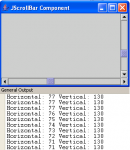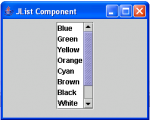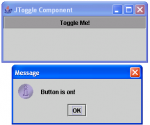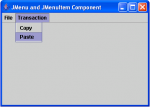JScrollPane Component in Java
This is a tutorial in which we will going to create a program that will have a JScrollPaneComponent in Java. A JScrollPane implements scrollable view of a component that lets the user display a component that is large or one whose size can change using scrollbars.
So, now let's start this tutorial!
1. Open JCreator or NetBeans and make a java program with a file name of jScrollPaneComponent.java.
2.
- Read more about JScrollPane Component in Java
- Log in or register to post comments
- 66 views








